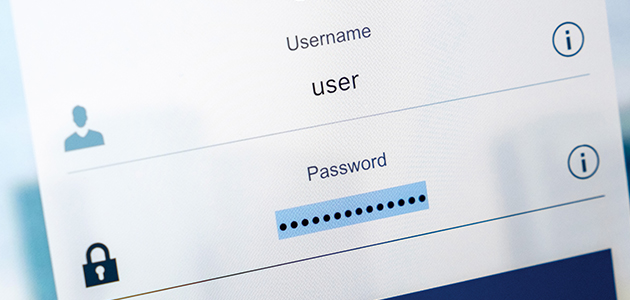
We know that banking and shopping online can be very safe as long as we take necessary precautions. But one of the best ways to protect yourself when you’re doing anything online that requires you to set up an account and provide personal information is to create a password that is next to impossible for hackers to guess.
Passwords are the most widely used form of authentication, but they are also one of the weakest forms of security because they are regularly compromised by clever hackers who know you may have chosen something like your pet’s name, your birthdate or your favorite color as a password. The problem is that users have to choose a password that’s easy for them to remember, but hard for hackers—and software tools that are created to guess millions of combinations—to crack.
How to choose a strong password
- Mix it up. Use mixed case letters, special characters and numbers in your passwords. For example, a phrase that’s easy for you to remember like, “My cat Lucy is special” might become: mYc@TLucyIs$p3cial.
- Make it long. The strongest passwords are at least eight characters long.
- Change it up. Yes, it’s frustrating to have chosen a safe password and memorized it only to have to change it, but doing so at least once a year is wise. Better safe than sorry! Of course, you should change your password immediately if you have been made aware of a security incident by the service provider, if there is evidence of unauthorized access to your account, or if you logged in to your account on a shared or public computer (like at a library or hotel).1
Other password tips to remember
- Passwords should never be the same as a user-id.
- Never use the word “password” or the number sequences like 1234 or 0000—or anything this simple and easy to guess.
- Don’t use the same password for every single account. If someone cracks it, they now have access to everything.
- If you’re a home computer user, writing down your passwords and keeping them in a safe place is generally a safe practice, provided you share your home with people you trust. When it comes right down to it, if writing down your passwords means you’ll feel more comfortable creating difficult ones that will prevent you from identity theft, it just makes sense.
- Never write down work passwords. Aside from the fact that it’s probably against company policy to do so, you could face severe consequences if someone finds the password and uses it to do something bad with your account. Opt for passwords you can remember instead.
That old saying, “an ounce of prevention is worth a pound of cure” is particularly true where online security is concerned. Taking the time to create strong, unique passwords for all of your online accounts gives you peace of mind knowing that you’ve done all you can to protect your sensitive, private information.
SOURCES
1 https://blog.lastpass.com/2018/08/often-change-password.html/

